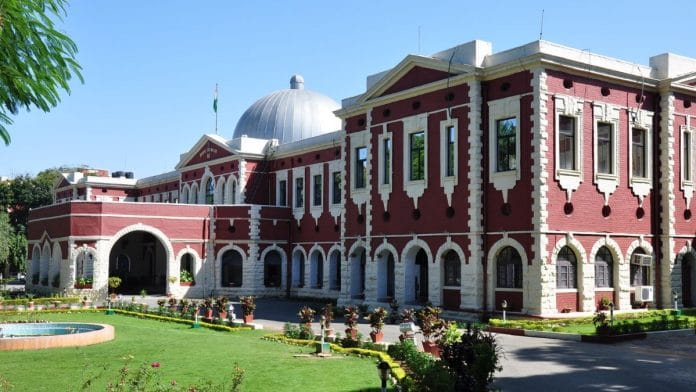New Delhi: In a setback to the Jharkhand government, the high court in Ranchi Wednesday refused to modify its 9 September order banning the allocation of sand ghats and minor mineral mines in the state.
A bench comprising Chief Justice Tarlok Singh Chauhan and Justice Rajesh Shankar rejected the state government’s plea to lift the stay on the allocation process, saying it had yet to comply with the court’s direction to frame and notify rules under the Panchayats (Extension to the Scheduled Areas) Act, 1996 (PESA), which grants control over resources in scheduled tribal areas to gram sabhas.
The court said that for allocation to proceed, the state must first frame the PESA rules.
“You notify the rules, and we will allow allocation,” it said. “The advocate general is before us. We thought you would place the rules before us,” the chief justice said on seeing that the state’s top law officer had appeared to argue the modification plea.
On 9 September, the same bench had halted the state government’s attempt to auction minor mineral mines till it framed PESA rules.
Enacted by Parliament in 1996 following the 73rd Constitutional Amendment, PESA extends the Panchayat Raj system, with modifications, to scheduled areas, giving special powers to gram sabhas over land and minor minerals.
The ban order was passed when the bench learnt that instead of implementing the high court’s July 2024 order to notify the PESA rules, the state was in a hurry to auction the mines. The bench was hearing a contempt petition filed by a non-profit organisation, Adivasi Buddhijeewi Manch, against the state for not implementing the 2024 directive.
The bench was outraged on being told that the state had issued an advertisement announcing the auction of minor mineral mines during the pendency of the contempt petition.
The advertisement, dated 1 September 2025 and published for the allotment of 18 mining sites in Gumla district, was shown to the bench, with the petitioner claiming that the government was in a hurry to conclude the auction process. This, it was argued, clearly revealed the state’s malafide intention to take away the rights conferred on a gram panchayat under PESA.
The advertisement had fixed a week between 3 and 10 September for the submission of applications, which, as per the timelines, would have been scrutinised within the next two days. The outlined scheduled aimed to make the allotments on 15 September.
The petitioner, represented by senior advocate Ajit Kumar and lawyers Gyanant Singh and Abhishek Rai, argued that the delay in the notification of the rules was with a purpose.
Minor minerals mean building stones, gravel, ordinary clay, ordinary sand other than sand used for prescribed purposes and any other mineral which the central government has declared from time to time or may declare, by notification in the official gazette, to be a minor mineral, under clause (e) of Section 3 of the Mines and Minerals (Regulation and Development) Act.
On Wednesday, state’s Advocate General Rajiv Ranjan tried to impress upon the court that it was a legislative power which has to be exercised by the cabinet and a draft had already been forwarded to the chief minister.
When the petitioner’s counsel informed the bench that similar drafts were prepared in the past and sent to the chief minister, the bench told the law officer that it was concerned with the implementation of its order and with procedure.
When Ranjan informed the bench that the court had stopped the auction at a time when the process had commenced, the bench told him it would not modify its order without hearing the petitioner. It issued notice to the NGO and listed the matter for 9 October.
To the law officer’s contention that the stay caused loss to the exchequer, the bench said: “There is no problem, you notify the rule tomorrow, and we will vacate the stay.”
Ranjan assured the bench that the rules would be in place within a month, once all the departments provide their response to the draft rules.
But dissatisfied, the bench asked Ranjan if the state acted against erring officers, who have failed to provide their inputs to the draft rules. “Have you taken action against erring officers? Are you making a statement that you will initiate action against your officers,” Chief Justice Singh asked, while adjourning the matter.
(Edited by Shashank Kishan)
Also Read: Soren, the statesman—the man who built Jharkhand, leader of the masses, the ‘irreplaceable’ Guruji






